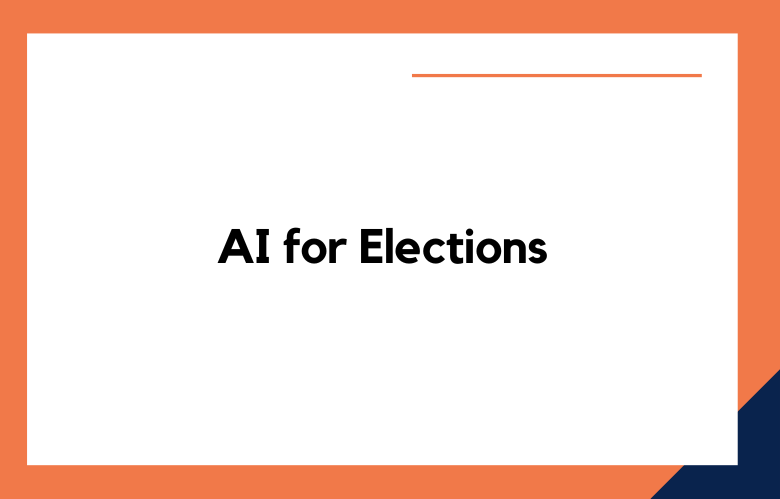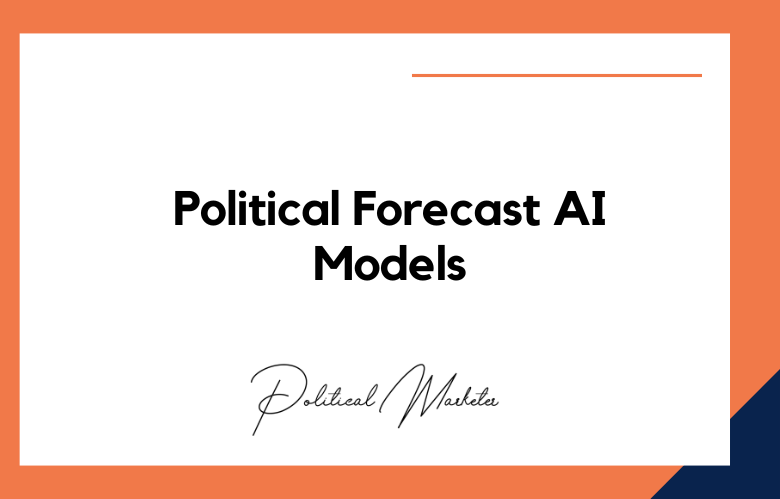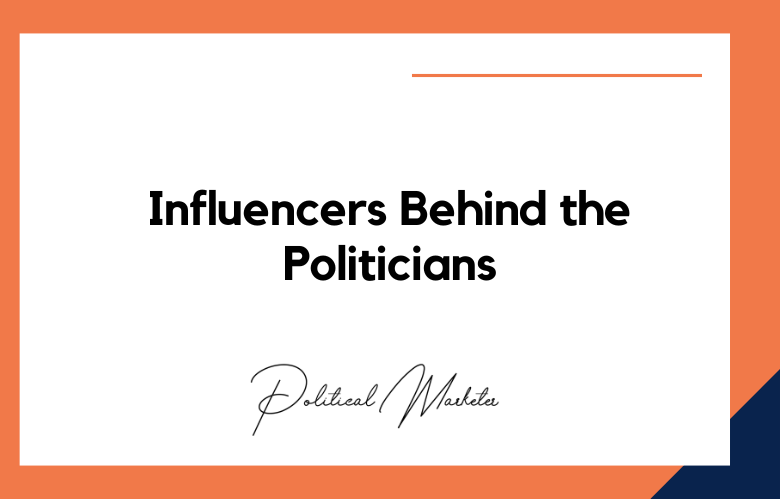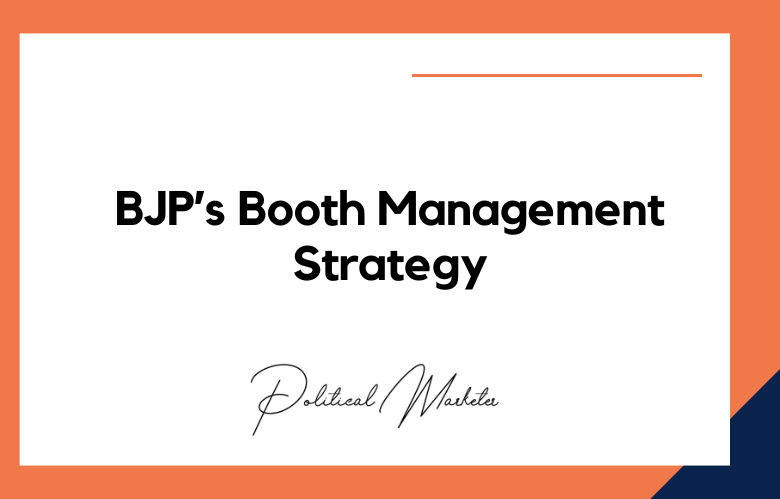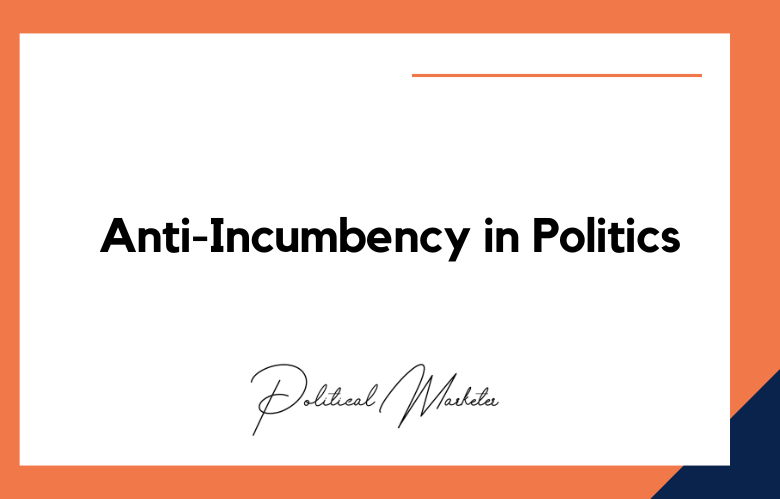With the advancement of technology, more and more companies have started implementing Artificial Intelligence (AI) to make predictions, analyze data, and make decisions. One area where AI can play a significant role is in elections.
Political campaigns are notoriously expensive and time-consuming, but AI can make them more efficient and effective in reaching their intended audience. We will discuss how AI can shape political strategies and make it easier for candidates to run campaigns.
What is AI, and How Does It Impact Political Campaigns?
AI refers to the capability of machines to learn, analyze, and respond to data without human interference. AI could change how we live, and it’s not so far-fetched that it might change how we vote in the future.
AI technology can allow political campaigns to manage large data sets and personalize advertising to match the voter profile. Using data science, campaigns can use AI to predict voting patterns and create more persuasive speeches.
What is the Impact of AI on Political Campaigns?
The impact of AI still needs to be clearly defined. Some people argue that AI can create more relevant and personalized advertising, while others feel that AI could create an Orwellian world.
Personalizing advertising is a positive aspect of AI in political campaigns since it can increase voter turnout.
However, using AI in manipulative ad targeting is viewed negatively, reducing voter trust. AI can also assist in voter suppression, where targeted ads are used to eliminate voter demographics.
How can Smart Technologies Shape Political Strategies
Intelligent technologies can completely disrupt and enhance political strategies. Using innovative technologies in data analytics can provide real-time insights into political campaigns.
This allows campaigns to create more accurate predictive models and adjust their future actions accordingly. Innovative technologies can also automate various processes, helping campaigns save time and resources.
AI-driven chatbots might soon replace most current voter engagement practices, providing campaigns with cost-efficient and interactive ways to reach voters.
Best Practices for AI for Elections: How Smart Technologies Will Shape Political Strategies
Data Analysis
AI can help candidates and their campaigns gather, analyze, and interpret vast data sets to understand the voting patterns and demographics in specific locations.
AI can also help predict the voting behaviors of constituents. With this information, campaigns can create targeted messages that resonate with their intended audience to gain traction.
Personalization
AI can help campaigns to personalize their messages to each voter based on the data gathered about them.
Campaigns can tailor messages focusing on essential issues to voters, leading to a better response rate. Personalized messages also make voters feel seen and valued and can lead to better engagement.
Social Media
Social media plays an integral role in modern-day political campaigns. AI can help campaigns to analyze their social media outreach and compare it to their competitors effectively.
With AI, campaigns can identify trending topics and use them to tailor their messaging to be more effective. AI can also detect false information and misinformation to allow movements to respond faster and more effectively.
Predictions
AI can predict potential outcomes and identify where campaigns should focus their resources. It can determine the demographics most likely to be swayed by specific messages and identify more significant trends that could impact the election.
This information can inform which demographics to target, which messages to focus on, and how to design campaigns effectively.
Reducing Bias
AI can help to reduce bias that often undermines traditional election campaigns. With AI, campaigns can remove human biases and let technology create messages and strategies that are more equitable.
Reduced bias ensures that campaigns reach out to all individuals, regardless of their race, gender, or other factors that often influence how campaigns are run in traditional campaigns.
The Influence of AI on Voter Behavior
AI has disrupted traditional polling methods by providing a more comprehensive analysis of voter behavior. Political campaigns can now rely on AI-generated data to understand voter preferences, prioritize their needs, and predict future outcomes.
Using AI, political campaigns can collect and analyze data about people’s online behavior, including social media, to create personalized content and engage voters more effectively.
AI-Generated ads
Political campaigns are expensive, and candidates have relied on TV and radio ads for years to reach a broader audience. Today, AI-generated ads can be more effective in targeting voters who are less likely to support their party but may be open to compromise.
AI can generate personalized ads based on a person’s interests, demography, and online behavior. Political campaigns can leverage AI to create highly targeted and persuasive ads that resonate better with the audience.
Voter Suppression and AI
Despite the benefits of AI in politics, there are concerns about its potential impact on voter suppression. By analyzing big data, AI can create targeted ads that might suppress votes in communities where family, employment, or social lives are at risk.
AI can also be used to manipulate search results, restrict the visibility of campaigns, and limit voter outreach. We need greater accountability, transparency, and ethical standards for AI in elections to combat voter suppression.
AI for Election Security
Election security has become a critical concern globally, and AI can help mitigate the risks associated with fraud, cyberattacks, and hacking.
AI algorithms can detect anomalies in voting patterns, identify cyberattacks, and quickly alert authorities. AI can also analyze social media and see fake news and misinformation that can influence the electoral process.
The Future of AI in Elections
The use of AI in elections is still in its early stages, and we can expect further advances that will shape the political landscape. AI-powered bots and virtual assistants can help provide timely and accurate information to voters, increasing voter participation and engagement.
AI can also be used to create more immersive campaign experiences, such as virtual rallies, and provide real-time analytics about the performance of various campaigns.
Conclusion
AI provides fertile ground for better and brighter political campaigns. AI can help campaigns create personalized messages, analyze vast data sets, organize outreach effectively, and design campaigns that achieve the intended goals.
Campaign managers and candidates who embrace AI are more likely to succeed in these increasingly uncertain times. By maximizing AI, political campaigns can reach new heights of efficiency, effectiveness, and accuracy.
Call: +91 9848321284
Email: [email protected]

